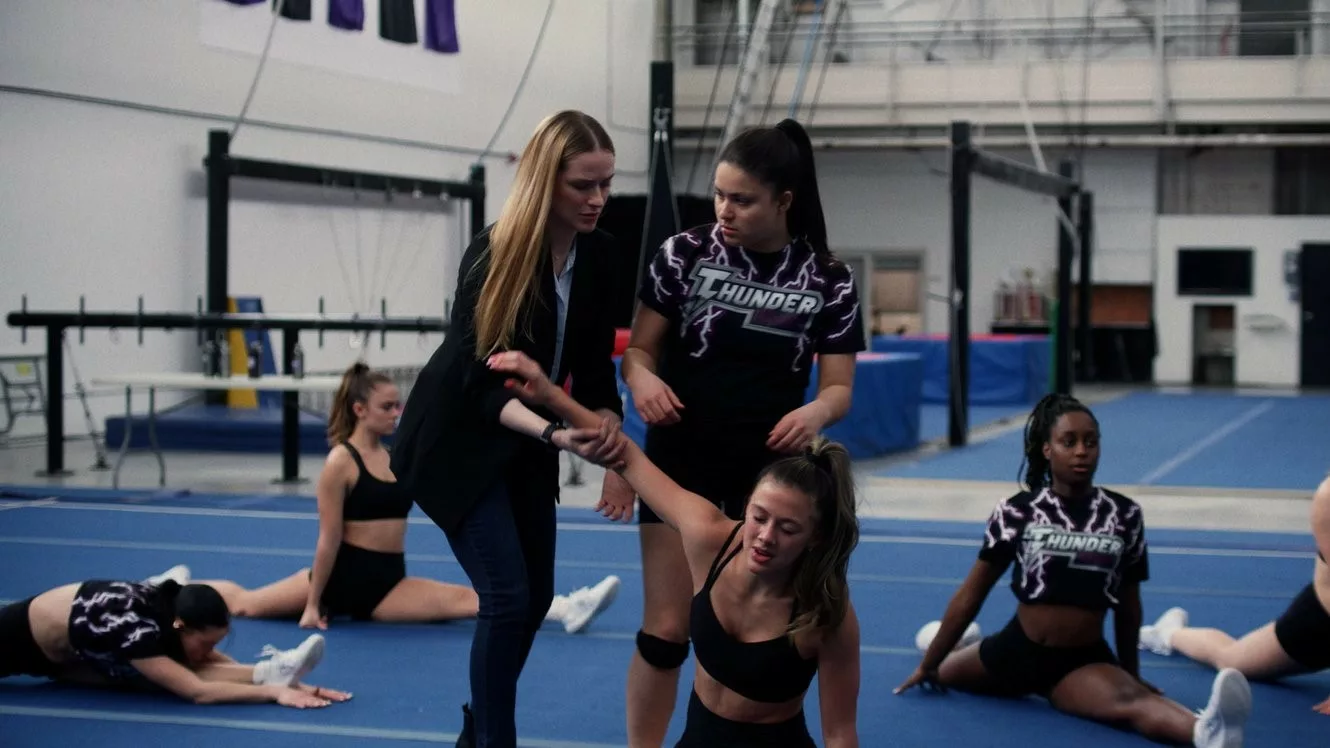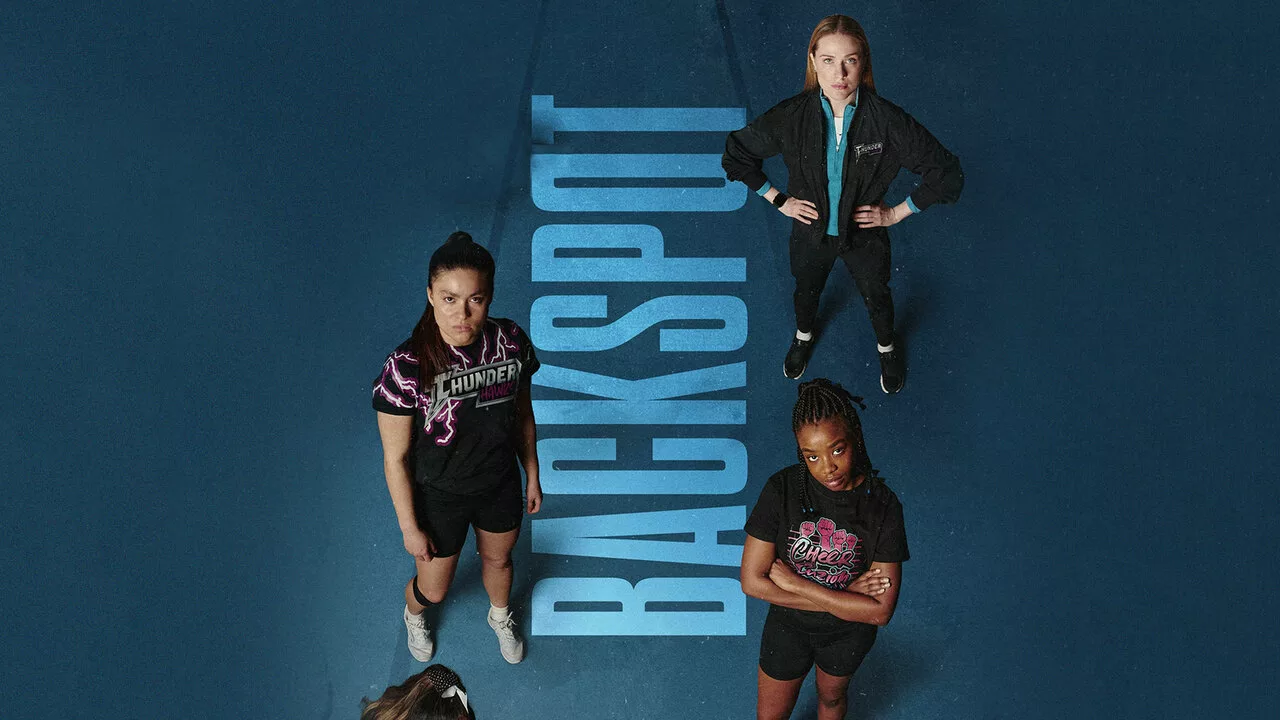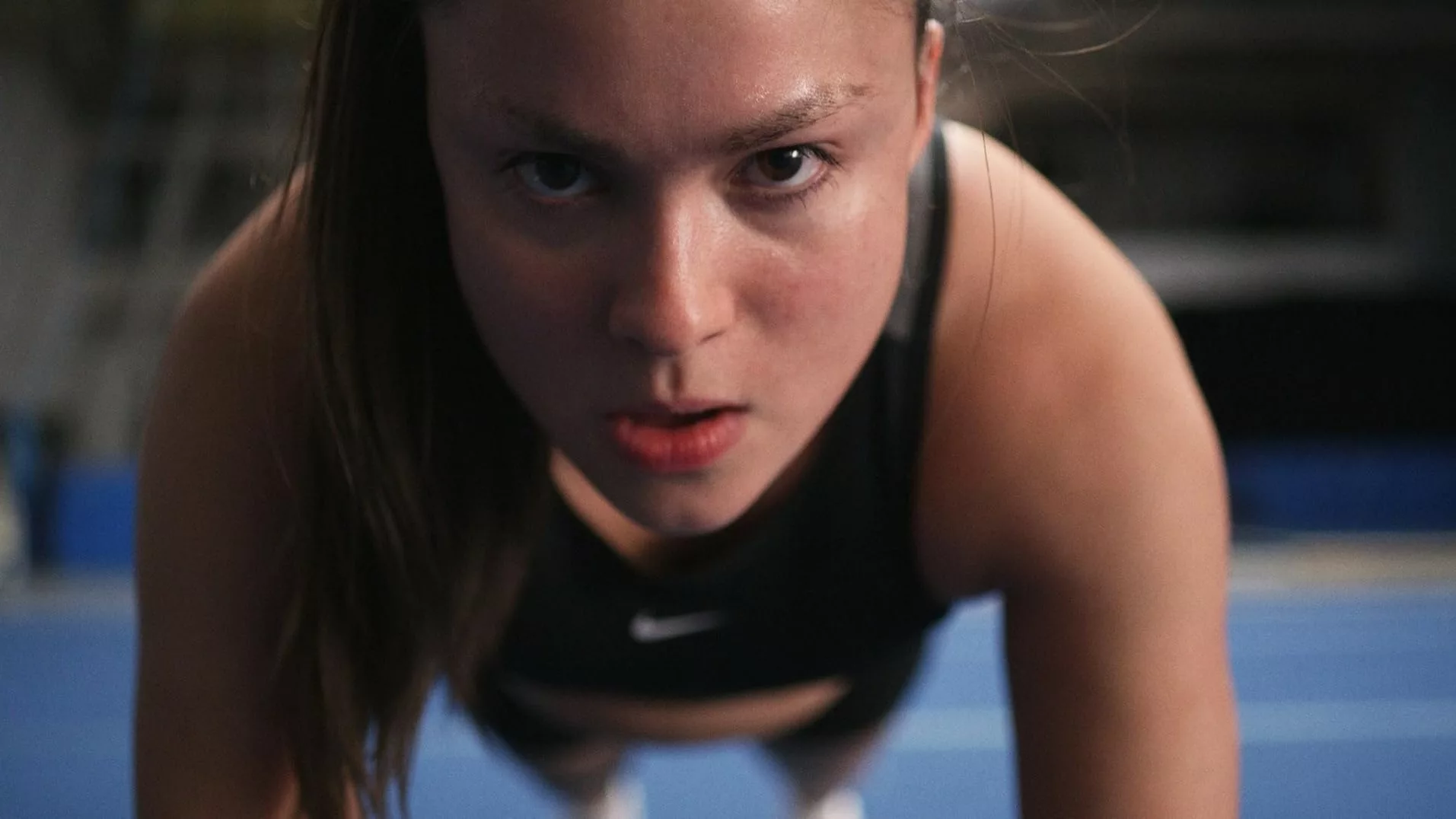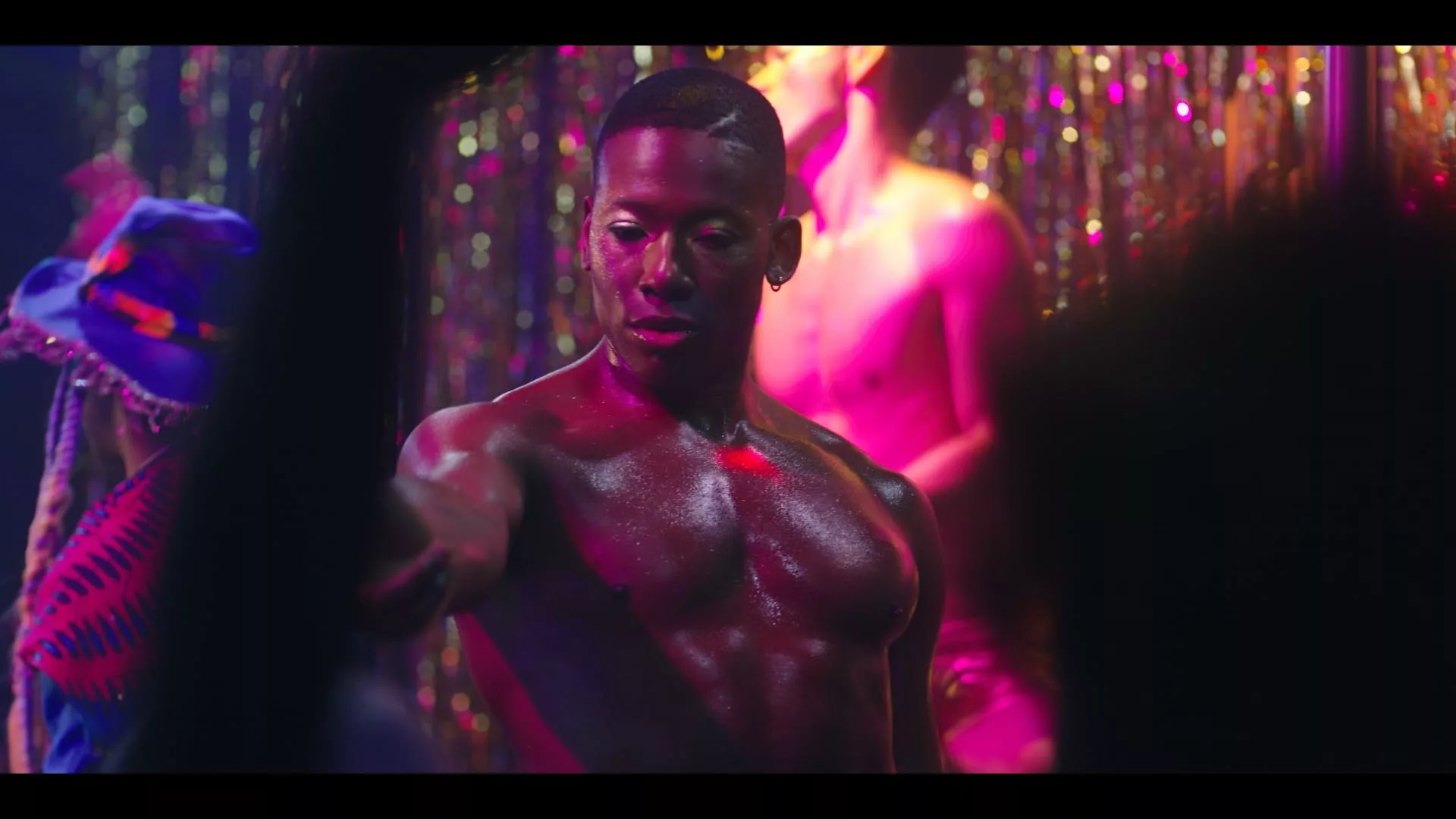Backspot follows Riley, a driven high school athlete with big dreams of joining the elite competitive cheerleading team, the Thunderhawks. Directed by D.W. Waterson with a screenplay by Joanne Sarazen, the movie puts Riley’s determination and struggles in the spotlight.
Riley already excels as a backspot, the cheerleader who safely catches flyers mid-stunt. But joining the Thunderhawks under the stern coaching of Eileen, portrayed with intensity by Evan Rachel Wood, will take Riley’s skills and fortitude to the next level. Along with her girlfriend Amanda and friend Rachel, Riley battles to prove herself on the competitive circuit.
Yet the extreme pressure also weighs heavily on Riley. Behind her perfect smiles and routines, she privately wrestles with high-strung anxiety. As her stress rises, her compulsion to pluck at eyebrow hairs increases. Devery Jacobs delivers a nuanced performance, exploring Riley’s depth beyond her drive.
With ambitions clouding reality, Riley risks losing sight of where to draw the line between sacrifices worth making and an impossible standard set to break her. Backspot prepares to showcase the soaring highs and bruising lows of chasing excellence at any cost.
Intense Athletics of Competitive Cheer
Have you ever witnessed the gravity-defying feats of acrobatics at cheer competitions? Unlike cheersquads on the sidelines spurring sports teams, competitive cheer is a full-contact sport in its own right. Squads execute precision routines showcasing dizzying stunts, tumbling runs, and intricate formations judged on difficulty, synchronization, and appearance.
It’s a display of raw athleticism that seems to defy the human body. Teams throw specialized members high in the air to twist and somersault, captured gracefully by base athletes with strength matching their flexibility. Maintaining rigid smiles and sparkling costumes contrasts the brutality of these maneuvers and the training required.
Cheerleaders juggle impressive workouts with academics, yet the schedule still leaves little room for error. Coaches drive squads to extremes with the demand for physical supremacy and flawless routines. Meanwhile, teams strive to epitomize femininity through appearance, despite muscular demands.
The balancing act takes a toll. Injury risk is ever-present, whereas falls could spell the end for ambitious careers. The stressmanifests mentally as well, underneath the graceful facade many portray. Backspot introduces a glimpse into navigating these intense pressures, depicting one athlete’s dedication and struggles in the competitive cheer world’s unforgiving light.
Facing Perfection
Riley lies at the center of Backspot, a talented yet anxious backspot pushing herself to succeed. Always driving for more, she leaps at the opportunity to try out for the elite Thunderhawks. As the film’s protagonist, Riley’s ambition and struggles resonate deepest. Focused solely on cheer, Riley’s emotional barriers emerge through exhausted plucking at her eyebrows following routines. Under her composed facade, she brews an unrelenting need to prove herself.
Alongside Riley travels Amanda, her steady girlfriend, who appreciates life’s simpler moments. While committed to cheer, Amanda maintains perspective outside the sport’s pressures. Rachel, too, joins their squad, providing comic relief amid grueling routines. Both support Riley however they can.
Dominating the gym emerges Eileen, the Thunderhawks’ merciless coach, pushing athletes beyond all limits. Stopping at nothing to sculpt the perfect squad, Eileen instills terror while intriguing Riley and seeking her approval. Devon assists firm yet fair, reluctantly cracking smiles at the girls’ spirit.
Glimpses into Riley’s home reveal her detached father and disorganized mother, leaving cheer as her solitary anchor. No family stability exists to cushion the program’s relentless demands. Thus, Riley faces perfection alone, her only identity tied to achievements in a sport offering no room for faults.
Capturing Perfection in Motion
D.W. Waterson brings a fresh eye behind the lens in Backspot. Drawing us into Riley’s experience, frenzied close-ups zoom in on the plucked eyebrow hairs, putting viewers in her stressed state of mind. With swirling shots, we feel the dizzying exhilaration and anxiety of stunts. Yet in quiet moments, tender glances between Riley and Amanda speak volumes.
Waterson saves the greatest artistry for capturing the competition. A breathtaking single take follows the routine from beginning to end, athlete to athlete, with the camera seemingly as athletic as the squad. The choreography of bodies in motion and the camera dancing among them deserves high praise. We experience the performance from Riley’s viewpoint, sharing her joy and release in those final moments of triumph.
Devery Jacobs pushes beyond what’s expected of lead actors. Not content with giving a fine emotional performance, she committed to mastering the sport’s precision herself. Her mid-air tricks look as natural as breathing, yet she inhabits Riley’s inner turmoil with equal skill. Joined by fellow stunt-performing co-stars, they bring an authenticity rarely seen.
Under Waterson’s expert direction and Jacobs’ commitments, Backspot brings the rarely visible world of cheer athletics to life. They grasp the mind-body duality that ties mental and physical perfection together in a quest for success.
Illuminating Inner Glory
Backspot delves into several profound themes. It examines the balancing act between athletic goals and mental well-being. Riley pours her all into cheer, yet it exacerbates her anxiety. Perfectionism consumes her as she chases approval. The film highlights the pressure girls face to embody feminine beauty in cheer.
Riley’s relationship with Amanda welcomes queer representation. Their romance feels authentic—another priority outside of Cheer’s all-consuming world. Through low-key moments, their bond hints at love’s power to nurture wellness.
Family dynamics also emerge as factors in Riley’s drive. With a disconnected dad and fragile mom, cheer becomes her proxy identity and family. She seeks surrogate parents in Eileen and Devon, craving their validation.
Waterson explores the tensions between outer glory and inner turmoil. Cheer demands physical and emotional strength while enforcing rigid standards. Riley controls her eyebrows’ plucking yet loses control of her anxiety. Her talent rises, but pressure threatens to break her.
In compelling scenes, Riley faces herself alone. Absentminded plucking reveals her private unraveling. Stripped of makeup after a panic attack, she sees her vulnerability. These intimate scenes shine light into darkness, conveying emotional precision through subtlety.
Deeper still, Backspot finds light. While acknowledging mental health challenges, it celebrates queerness and talent in a nuanced portrait. Rather than judge Riley, the film recognizes her humanity as an athlete chasing dreams, a daughter seeking home, and a young woman learning self-acceptance through love. Her inner glory emerges as greater than any outer validation ever could be. Ultimately, Backspot illuminates beauty in imperfection and the resilience of the human spirit.
The Art of Competition
Backspot soars by delving into the drive to win, yet it surfaces deeper truths. Waterson’s direction makes each stunt mesmerizing yet intimate, conveying cheer’s allure and cost through Riley’s eyes. We follow her journey towards perfection, gaining empathy for the pressures many face.
Jacobs embodies this conflict astonishingly. Beyond complex flips, her nuanced emotions resonate: joy in success, terror of failure, and desperation to prove herself. Subtle changes in her eyebrows’ status reveal inner unraveling better than overflowing drama ever could. Through Jacobs, we see past trophies to recognize Riley’s humanity.
Cheerleading serves as a vessel for relatable struggles. While not all relentlessly chase victory, ambition threatens balance in arenas from sports to work. Backspot suggests crowds cheer more than routines; we applaud seeing part of ourselves in others’ determination, however driven they become. Its non-judgment shows compassion for demanding what we demand of ourselves.
This impactful debut leaves us thoughtful about the competition’s allure and cost. Perhaps the “best” pursue not record books but growth through challenge. When we find purpose beyond others’ views, we discover our sincere strengths and forge identities that nurture well-being by breaking down barriers. For eliciting such reflections, Backspot proves a work of art.
The Review
Backspot
Backspot delivers a vivid yet nuanced portrait of one girl's efforts to find balance between passion and wellness in a world that celebrates only victory. Jacobs shines in a breakout role that feels deeply authentic, passionately conveying Riley's inner conflicts with finesse. Waterson's direction immerses us in cheer's allure and demands through a uniquely queer lens, bringing layered issues to the fore with subtle grace. While not without flaws, Backspot succeeds in its aim to showcase human stories beyond extraordinary feats. It leaves us thoughtful and emphasizes compassion over judgment.
PROS
- Outstanding lead performance from Devery Jacobs that feels authentic and grounded.
- Director D.W. Waterson immerses the viewer in the world of competitive cheerleading through kinetic camerawork.
- Tackles relatable themes of pursuing passion vs. maintaining mental health in a demanding environment.
- It brings a uniquely queer perspective to its characters and depictions of relationships.
CONS
- The plot moves at a gradual pace and could have expanded more on certain character backstories.
- Over-reliance at times on close-ups of eyebrow-picking to convey Riley's inner state.
- There is a lack of depth to some supporting characters beyond their role in Riley's story.




















































